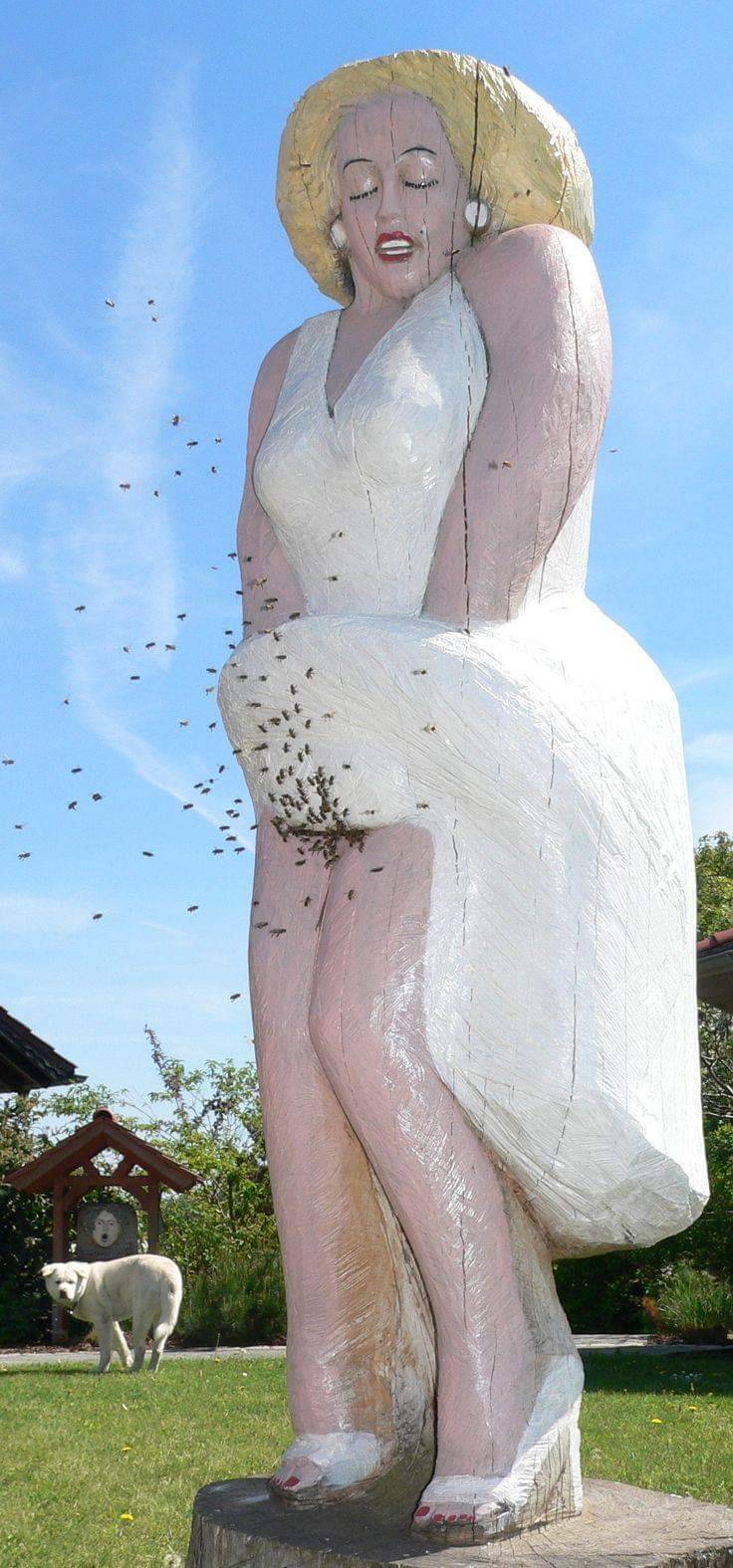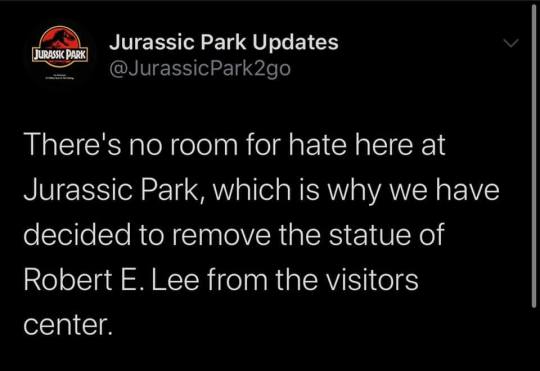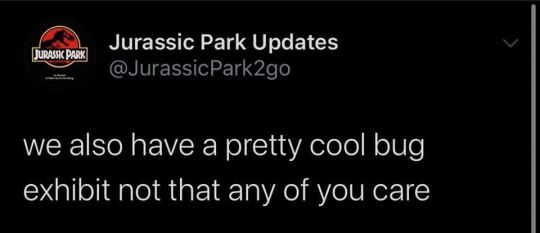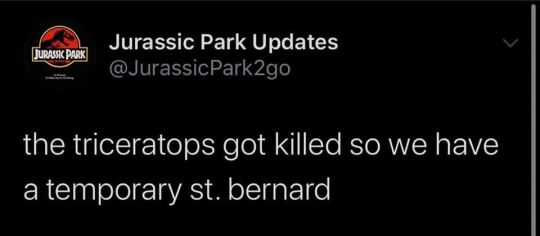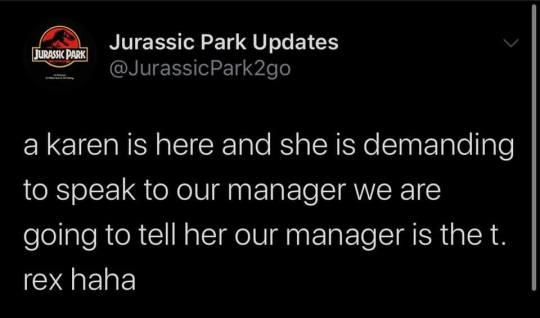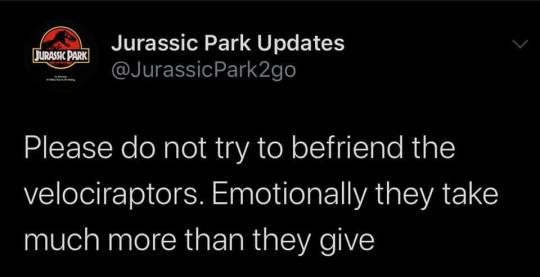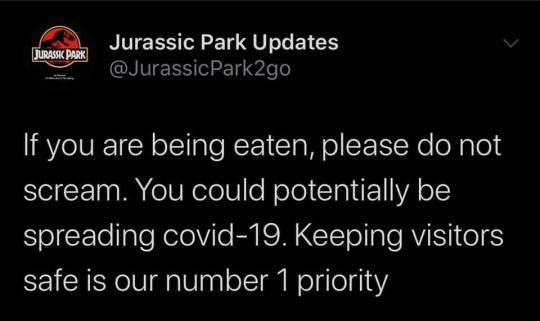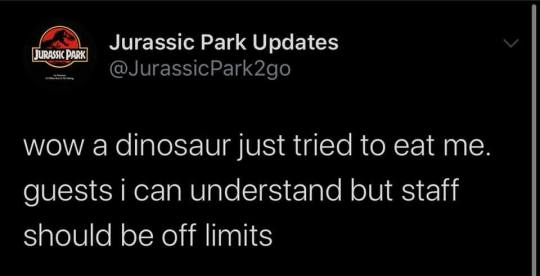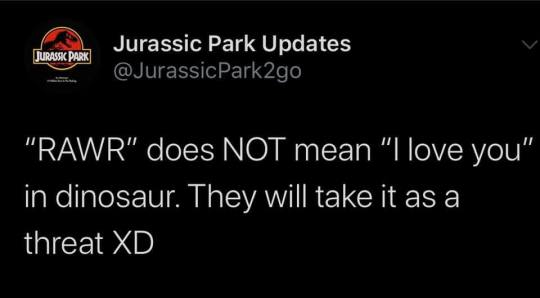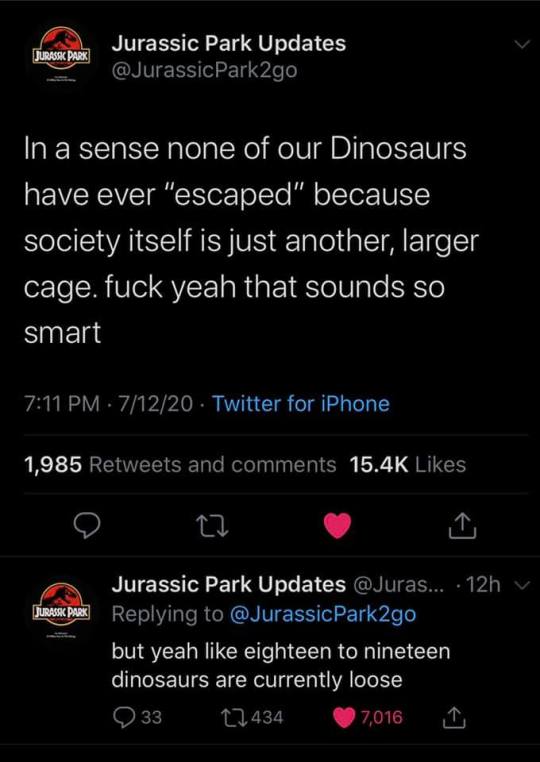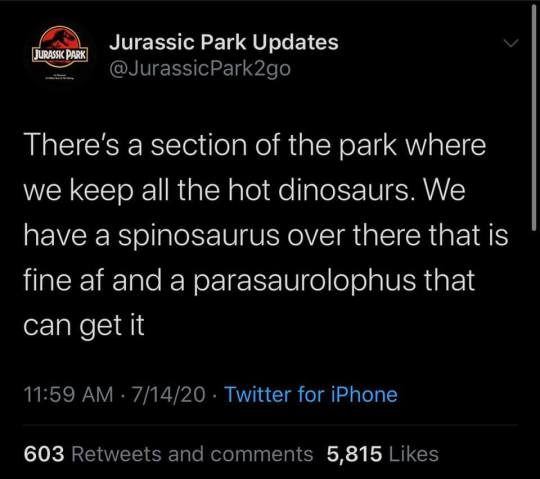e; quotes Douglas Adams ; writes music and other stuff ; enneatype 4 ; she/her ; fruits basket sideblog: rin-isuzu-sohma
Don't wanna be here? Send us removal request.
Text

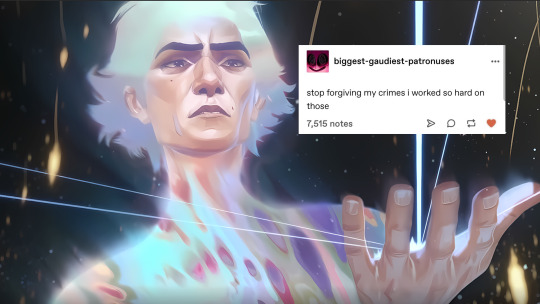
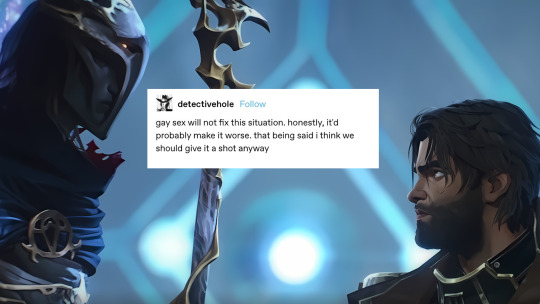
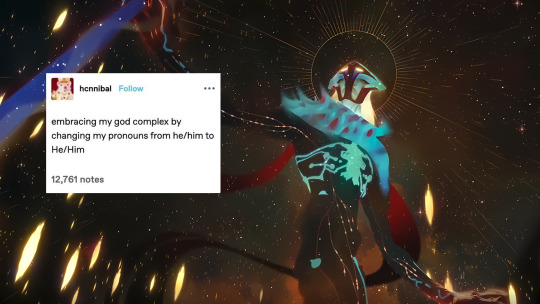
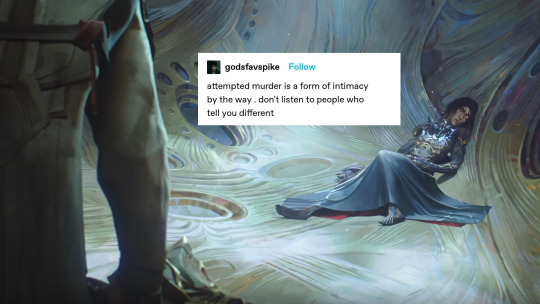
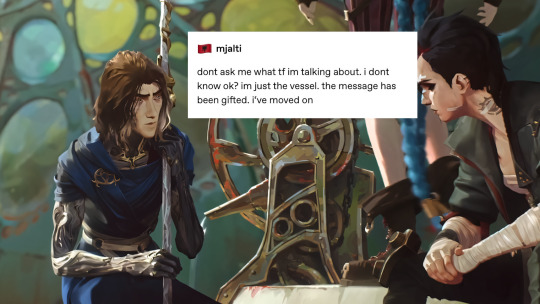
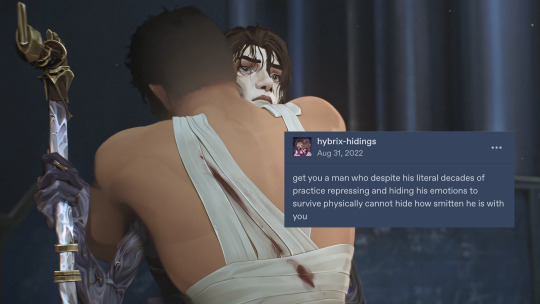
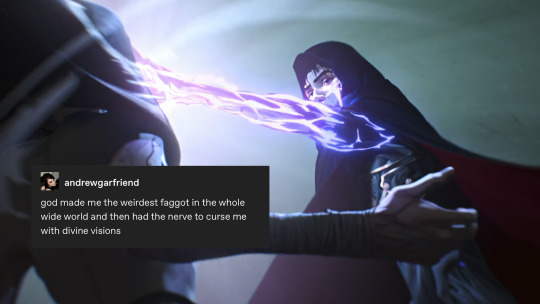


evil viktor (+ a bit of jayce) as textposts [2/?]
#arcane#arcane league of legends#arcane season 2 spoilers#arcane s2#arcane memes#jayvik#yes arcane is the latest obsession ok#yes its the league show#shut up its amazing
26K notes
·
View notes
Text
genuinely wild to me when I go to someone's house and we watch TV or listen to music or something and there are ads. I haven't seen an ad in my home since 2005. what do you mean you haven't set up multiple layers of digital infrastructure to banish corporate messaging to oblivion before it manifests? listen, this is important. this is the 21st century version of carving sigils on the wall to deny entry to demons or wearing bells to ward off the Unseelie. come on give me your router admin password and I'll show you how to cast a protective spell of Get Thee Tae Fuck, Capital
49K notes
·
View notes
Text
guys....., its "all of A sudden"
who is this "The Sudden" you're on about
0 notes
Text
please listen to this it is destroying me its so funny
19K notes
·
View notes
Text





"It took my whole, entire mortal life to remember who I was... and now it's time for you to do the same, my brother."
4K notes
·
View notes
Text
"stop commenting on actress's bodies" nah actually I think I will continue to comment on the fact that since the rise of ozempic every second actress looks like she's about to blow away in a strong wind because I lived through heroin chic and normalised eating disorders and insane body expectations the FIRST fucking time and saw the damage it did so I'm personally not going to stay silent and let choice feminism make extreme weight loss "acceptable" just because tiktok has convinced some of yall that any choice a woman makes is Valid just because she's a fucking woman like are you all fucking serious right now
29K notes
·
View notes
Text
Hey, look at me. Look at me. I’ve said it once and I’ll say it again: you need to condition yourself to being okay with being inconvenienced by things. The first time I spoke about this I meant it in a mental health way- it is good to go out to the store and see people versus just ordering alone at home- but there is another more pressing societal issue you should be more concerned about as well.
Any service you rely on for convenience can be weaponized against you the moment you begin to rely on it. Streaming used to be a cheap and convenient way to see movies at home. It is now exorbitantly expensive, you need multiple accounts just to get what you want, and any of those movies can be taken from you at any time. And unless you have gotten used to going through the “inconvenience” of owning physical media, you can do nothing about it. Same goes for buying things on Amazon. Same goes for any service like DoorDash etc. These companies WANT you to be reliant on them for convenience so they can do whatever they want to you because, well, what else are you gonna do?
Same thing goes for the uptick in AI. If you train yourself to become reliant on AI for doing basic things, you will be taken advantage of. It is only a matter of a couple years before there are no free AI services. Not only that, but in the usage of AI’s case, it is robbing you of valuable skills that you need to curate that you will be helpless without the moment the AI companies drive in the knife the way they have done with streaming. Delivery. Cable. Internet. Etc. It will happen to AI too. And if you are not practicing skills such as. Writing. You are not only going to be at the mercy of AI companies in the digital world, but you are going to be extremely easy to take advantage of in real life too.
I am begging you to let go of learned helplessness. I am begging you to stop letting these companies TEACH you helplessness. Do something like learn to pirate. It is way more inconvenient at the beginning, but once you know how, it is one less way companies can take advantage of you. Garden. Go to the thrift store (older clothes hold up better anyway). These things take more time and effort, yes, but using time and effort are muscles you need to stretch to keep yourself from being flattened under the weight of our capitalist hellscape.
Inconvenience yourself. Please. Start with only the ways you are able. Do a little bit at a time. But do something.
39K notes
·
View notes
Text
the blade of the wild frontier

I had a lovely time drawing Wyll again for the wonderful @carryoncastiel I loved their idea of a western Wyll!~
5K notes
·
View notes
Text
Got reminded again of my old coworker who was a massive misogynist but also trans inclusive. Told me he believed trans women are indeed women because "only women would be stupid enough to want to be women"
I wonder what he's doing now
104K notes
·
View notes
Text

Shit this got me out here cryin in the club
TERFS do not interact
243K notes
·
View notes
Text

uk people, sign and share
non uk people, share but don't sign
terfs, get in the bin and stay there
15K notes
·
View notes
Text
Sam Nordquist Is Not The Only Black Trans Person That Died This Month.
Do Only Some Black Trans Lives Matter to You?

there's no clever way of saying it. people in our community, in general, do not care about Black trans female sex workers or their lives.
117 original posts on tumblr about Sam Nordquist, multiple in the hundreds of notes, not even counting posts memorializing Lisa or Tahiry too. more needed, but comparatively a lot of coverage when you consider:
6 original posts about Tahiry Broom, a 29 year-old Black trans female sex worker that was killed five days earlier and reported on at the same time as Sam. two of those original posts are memorializing all trans people that have passed this year, and only one has more than 30 notes.
(link to more awful evidence on how ignored Tahiry's passing has been in comparison to Sam's and in general)
how can we be so cruel as to create and perpetuate a hierarchy when it comes to how worthy of care a Black trans death is? to validate the oppressive systems that ended her? this community's transmisogynoir and disregard for the lives of sex workers is sickening. and it's the exact reason her murderer called 33 Black female sex workers (including other trans women) and eventually Tahiry when he was looking to lure someone to her death. it's the exact reason this young woman died 12 days before her birthday.
Say Her Name.
Share Her Funeral Fund. (Service on 22nd)
Tell Her Story.
Donate to Help Black Trans Sex Workers, Black Trans Women's Freedom of Movement, Homeless Black Trans Women, Black Trans Rental Assistance and Gender-Affirming Care, Black Trans Activism, Identification of Missing and Murdered Trans People, and Black Trans Women's Nourishment, Freedom, and Safety.
Pay Attention by keeping up with News Outlets and Orgs that report on Black Trans Women and Sex Workers (like Blaque Out, pghlesbian, NBJC, etc.) by following their social medias and subscribing to their newsletters—
esp pghlesbian who works in tandem with Trans Doe Task Force and therefore is usually the first to report (btw, consider donating to her legal defense and blog expenses as she's too disabled to work and has been sued by transphobes)
ID BELOW
[ID: A cropped screenshot of an online article by Pittsburgh Lesbian Correspondents. The article's title says "29 Year Old Black Trans Woman Tahiry Broom Killed in Detroit" with smaller text below it saying "February 14, 2025 by Sue". A photo below shows Tahiry, a young woman with a soft face and warm brown skin. She has a short, straight, sleek black bob. Her baby hairs are laid down. She has a filter that makes her thin eyes a grey-blue underneath her long false eyelashes. Her medium-to-wide nose turns up at the end, and her thick, glossy lips seem to be puckered for the photo. Her eyebrows are black and thinned out, and she seems to be wearing a black salon cape buttoned over her multicolored blouse. A chest tattoo of what seems to be a dark green vine peeks out from under the cape. She is beautiful. Below the photo, text reads "Tahiry 'Tokyo' Broom via family". End image description.]
2K notes
·
View notes
Text
someone: this beauty standard was constructed with specific political purpose, and effectively dismantling the power structure that justifies itself through it requires us to give up using aspects of the body as a metaphor for morality or social worth
the notes:
it’s just a personal preference, it’s not that deep, go outside, touch grass, get married, work a hard job, have kids, stop thinking
so you’re saying I have to fuck people with [trait]? you’re going to show up at my apartment and force me to fuck strangers? your analysis of beauty standards is literally rape. OP wants to fuck me specifically, a random hostile stranger in their notes. they’re turned on because their body disgusts me! (no I have never seen them but I vividly imagine their body as disgusting because why else would they make a post like this)
did you know that another society/culture/time period had a different set of beauty standards? I bet OP didn’t even realize this
actually beauty standards are evolutionary instinct and you’re anti-science. you want us to ignore biology?
I actually WANT to fuck people with [currently devalued trait]
we should remind people that [currently devalued trait] was valued in a different society with another brutal hierarchy based on bodily ideals as proof that [currently devalued trait] is good actually. this definitely does not replicate the exact politics OP is challenging
once I met someone with a stigmatized bodily trait and they were a bad person. I’m sharing this anecdote absent any context so others can draw their own conclusions. if you go to my blog every single post is me sharing totally real stories of people with this trait doing mean things. I’m not saying certain bodily traits create inferior morals, I’m just compulsively curating an entire blog to imply it over and over and over
I used to think [stigmatized trait] was disgusting but I’m trying to unlearn it right now. I assume anyone with that trait would feel me saying this publicly is an act of kindness I’m bestowing upon them rather than a casual cruelty just like all the other comments about how disgusting the trait is
#fatphobia discussion#body hair as well#the aMOUNT of this#i have seen#with my own two googlies#its so boring#tw body image
6K notes
·
View notes
Text
putting bg3 point and click voicelines together to sound like a conversation has brought me great joy, so. here's gale, karlach, shadowheart, and astarion doing a terrible job of sneaking around
20K notes
·
View notes

